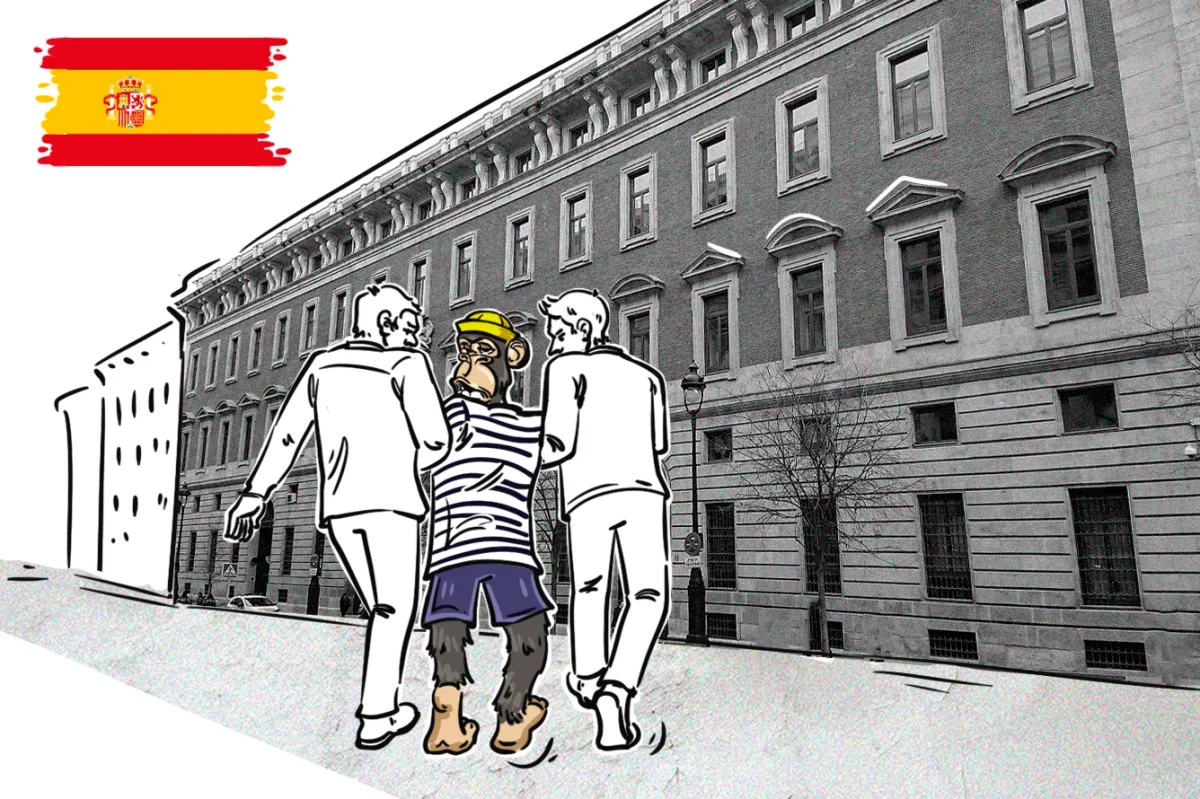
On Monday, Spanish media reported that the country's finance ministry is planning a tax reform that will give authorities the power to seize cryptocurrencies, non-fungible tokens and other digital assets to cover debts to the central administration.
The government first proposed settling tax debts with cryptocurrency in the Official State Bulletin (BOE) in early 2023. However, the snap elections that led to the re-election of Pedro Sánchez in November delayed the procedure for putting the measure into law, and it is only in the last few weeks that crucial changes have been made to allow the confiscation of digital assets.
Last week, the government approved a royal decree that designates payment providers and electronic money entities as 'partners in tax collection', forcing them to release citizens' assets in their custody if required by the central authorities, whether these are held in cash or digital assets.
Cryptocurrency owners in Spain have been required to declare their digital assets to tax authorities since 2021. In January this year, the law was extended to include digital money on foreign platforms.
The Spanish government is on a mission to tackle fiscal fraud and increase tax revenue. The tax reforms that the country is currently implementing are increasing the mechanisms for central surveillance of financial transactions, and extend well beyond the realm of cryptocurrencies.
According to local media, the Minister of Finance intends to oblige banks, payment providers and electronic money entities to supply information on “operations made with all types of credit cards” along with details of all parties involved in the transactions.
For the ministry to be able to seize digital assets from citizens, there are still some legal adjustments to be made. Article 162 of the General Tax Law must allow tax authorities to identify and monitor cryptocurrencies and NFTs, and the General Regulation Of Collections will have to be altered to increase the scope of the type of assets that can be confiscated.
The proactive stance of the Spanish Finance Ministry in regulating and increasing control over cryptocurrencies will need to undergo a number of changes when the European Market in Crypto-assets (MiCA) and the EU directive on digital assets taxation (DAC8) are implemented, as the bloc’s laws take precedent over national legislation. Currently, there is a divergence in several aspects of regulation, including the definition of digital assets and cryptocurrencies.
According to the late U.S. president Ben Franklin, the only things certain in life are death and taxes. The more unscrupulous cryptocurrency holders have been able to avoid this hard financial truth for many years. But now, national legislation around the world is catching up. In Spain, this may put some of them into a tight spot.

